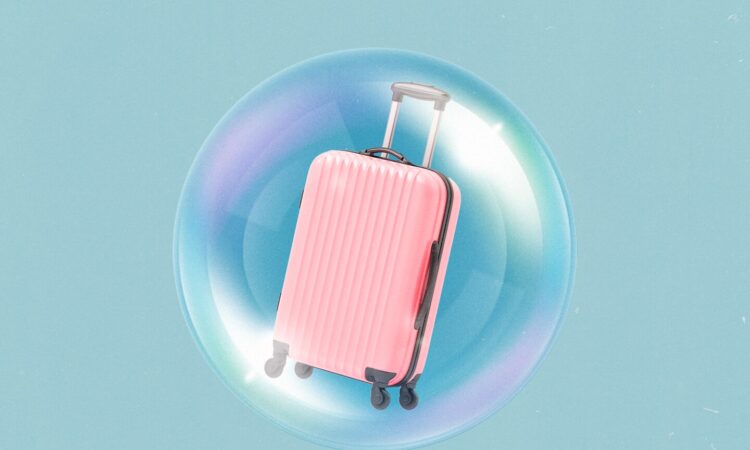
This year’s chaos may be unprecedented. According to the Transportation Department, air carriers canceled 3.2 percent of their domestic flights in the first six months of the year, up from 2.4 percent in the first half of 2019. They delayed about one-quarter of flights.
It has gotten so bad that DOT has proposed new rules to expand some consumer rights. The changes would set a standard for how long a flight could be delayed without triggering a requirement for a refund. They would also make airlines provide credits with no expiration dates to passengers who don’t fly because of illness.
But the U.S. proposals don’t go as far as the European Union did when it passed its consumer protections, called EC 261, in 2004. McGee says European-style rules would offer a powerful incentive to do better.
According to EC 261, airlines compensate passengers when flights are overbooked or when there’s a cancellation or delay. The type of compensation varies based on the circumstance and the distance traveled. Bottom line: If your flight is delayed or canceled, you’ll probably get a payment.
“They provide simple, understandable, uniform and consistent protections for all travelers when they face flight delays, cancellations, involuntary bumping and mishandled baggage,” he says.
Not so in the United States. Airlines are not legally required to compensate passengers for a delay or cancellation (although some have committed to it, as seen in the DOT’s new dashboard). They are required to refund your flight if they cancel it, and they may offer a hotel room or meal voucher when there’s a mechanical delay.
Experts say relief could come next year when Congress reauthorizes the Federal Aviation Administration’s (FAA) funding. Typically, legislators attach new consumer legislation to the FAA Reauthorization Act, and a move to adopt European-style regulations might happen then.
So what might a European-style airline consumer protection law look like if implemented in the United States? Here’s how legislation like EC 261 might translate to America, according to advocates:
- If your airline cancels a shorter flight (less than 1,000 miles), the company might have to compensate you with $250 and cover your hotel and meal expenses.
- For most cancellations or delays within the contiguous United States, a longer delay would get you a $400 payment.
- If your airline delays or cancels a longer flight — say, Los Angeles to Boston — by more than four hours, you would receive a $600 payment.
Keep in mind that European consumer laws aren’t perfect. This spring, when British Airways delayed Regina Suitt’s flight from London to Budapest by nine hours, the airline promised to compensate her under the U.K. consumer regulation, which is similar to EC 261.
“I received an email from British Airways saying I would be compensated 600 euros each for my husband and me,” says Suitt, a retired college administrator from Tucson.
But weeks of waiting turned into months, and after a while, British Airways stopped responding to her emails.
That’s one of the weaknesses of the current European rule: There’s no specified timeline for compensating customers.
The payments can take months, and sometimes years, to process. (I contacted British Airways to ask about Suitt’s case. It said the payment was delayed “due to incorrect bank routing numbers” and eventually sent her payment.)
“I would love to see these protections extended in the U.S.,” says Mariah Arianna, a wedding photographer who frequently travels between the United States and Europe. “But I have little faith it would work.”
Arianna has seen too many European carriers delay or sidestep their requirements under EC 261. She believes that if such a law were to pass in the United States, airlines would find a way around it.
EC 261 does seem to motivate airlines to perform better. A recent study from the College of Europe found that it was associated with a 5 percent improvement in airline on-time performance. And the cost to passengers is low: The regulation raises ticket prices by about $1.
“EC 261 has proven successful in the E.U. in terms of improving the quality of air service,” says Tomasz Pawliszyn, CEO of AirHelp, a service that, for a fee, helps airline passengers receive refunds. He says the $1-per-passenger cost pales compared with the cost of delays. Flight disruption costs airlines $8.3 billion per year and passengers $16.7 billion, according to a study sponsored by the FAA through its National Center of Excellence for Aviation Operations Research.
Even with strong consumer protections, there’s no substitute for persistence in the fight for your consumer rights.
When Ann Johnson’s plane was delayed on a British Airways flight from London to D.C. this summer, she asked for compensation under EC 261. No can do, said British Airways. It claimed an “extraordinary circumstance” caused the delay — specifically, air traffic — which meant it was off the hook.
“I politely and patiently persisted,” says Johnson, a retired teacher from Falls Church, Va. “Finally, the airline admitted I was correct, and the money, about 600 euros, plus reimbursement for refreshments and taxis, is heading now to my bank account.”
Truth is, the odds of a regulation like EC 261 being adopted in the United States are low at the moment, according to observers. But if the upcoming holiday travel season is as difficult as expected, it could light a fire under the next Congress to strengthen protections for passengers.






